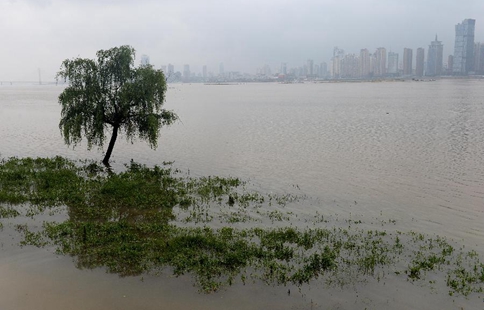GENEVA, July 4 (Xinhua) -- Extremely hot day-time temperatures coupled with high night-time temperatures in this summer are a dangerous combination for human health, the World Meteorological Organization (WMO) warned on Tuesday.
This summer has been marked by heatwaves and new daily temperature records in many parts of the northern hemisphere. For instance, the Iranian city of Ahwaz reported a temperature of 53.7 degrees Celsius on June 29.
The heatwave which hit the Iberian peninsular in mid-June spread to southeastern Europe and the Balkans, with temperatures topping 40 degrees Celsius in the past week, and often accompanied by violent and damaging summer storms.
Starting around June 18 and continuing for over a week, scorching temperatures also hit the western United States, from Arizona to the Pacific Northwest. June 20 was a particularly hot day, as Las Vegas, Nevada saw 47.2 degrees Celsius and Needles, California 51.7 degrees Celsius, both tied their all-time record.
In Arizona, Phoenix saw temperatures hit 48.3 degrees Celsius, causing multiple canceled flights out of Phoenix International Airport. The hotter the air, the less dense it is, which means less lift for airplanes as they take off. From June 17 to 27, Phoenix International Airport has had 11 straight days with temperatures of at least 43 degrees Celsius.
The WMO warned that extremely hot day-time temperatures coupled with high night-time temperatures are a dangerous combination for human health, as the body has little recovery period from the heat. They also place major stress on agriculture, water and energy supplies and transport.
Human-caused climate change is a leading factor to higher temperatures and more heatwaves, the WMO said, adding this warming is expected to continue with even longer and hotter summer heat waves.
The WMO is currently launching a new initiative with partners to explore how exactly climate change would make future summers even hotter in some of the world's major cities.

















